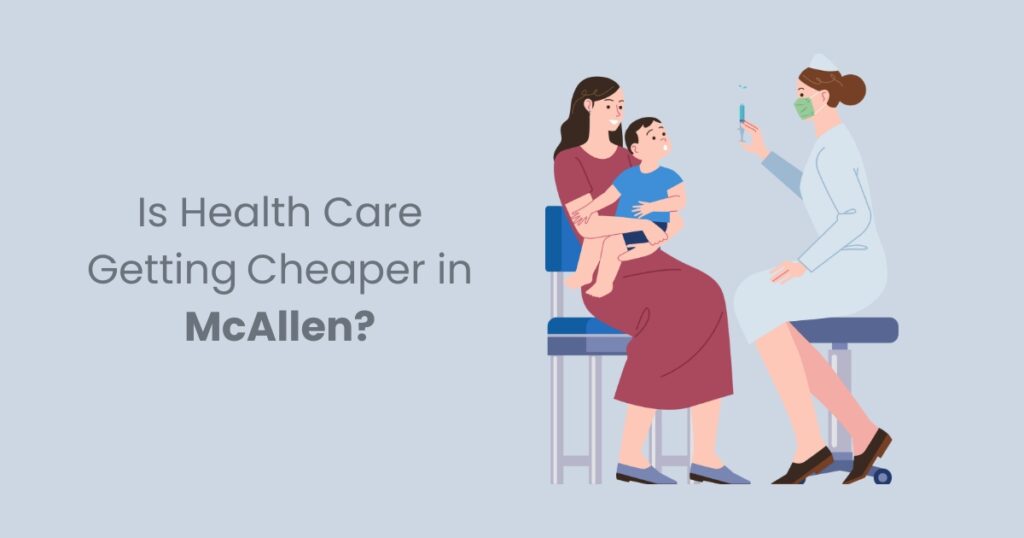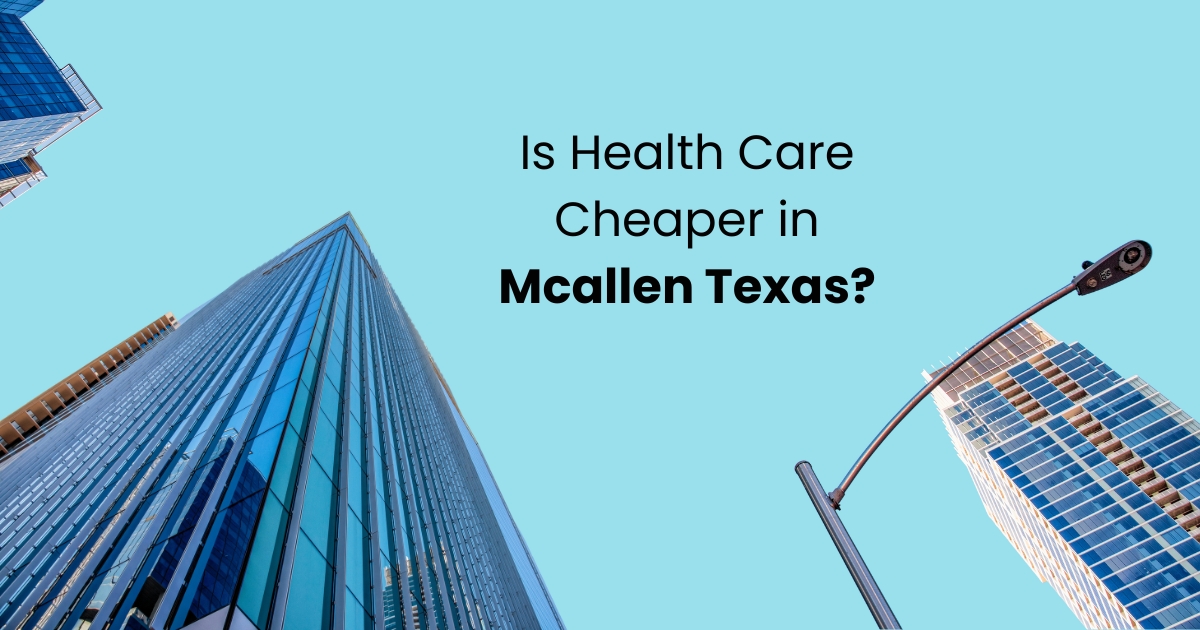McAllen, Texas a South Texas city that sits on the state’s southernmost tip close to Mexico became one of the focal points in national discussions about health care costs within this country. McAllen was the focus of a well-known 2009 article in The New Yorker by Dr. Atul Gawande, who wrote that McAllen had some of America’s highest medical costs. Since then, a controversy has ensued in larger circles about whether the McAllen health inflation is real and durable or somehow illusory, and what it says about our medical system at large.
McAllen’s Infamous Health Care Costs.
His article pointed out that McAllen, Texas had per capita Medicare spending among the highest in the nation almost twice as much as the US average and this was back in 2009. The piece observed that quality in McAllen was similar to, not better than other areas with lower cost. The health care system, with McAllen, provided as an example of what happens when costs are created recklessly simply to enrich certain parties at public expense adjust ENDED.
One of the major lessons Gawande drew from his examination was that McAllen’s high costs were not driven by sicker citizens, better care or more sophisticated medicine. Instead, one of the biggest reasons for these higher costs was seen as health care providers who have such a profit-oriented culture that they were over-utilizing medical services.

Is Health Care Getting Cheaper in McAllen?
Not long after Gawande’s story, many people in McAllen began working at the local, state and federal levels to control healthcare costs within their community. Such steps involve policy revisions, tougher Medicare spending oversight and efforts to cut down on unnecessary procedures while encouraging more cost-effective care. But has health care actually grown more affordable in McAllen?
Medicare Spending Trends:
A relatively simple way to examine whether health care in McAllen has become less expensive is to follow the money, specifically, Medicare spending which was a core concern of Gawande’s piece. However, new information from the Dartmouth Atlas of Health Care indicates that there has been a decrease in Medicare spending for McAllen since 2009. In McAllen, per capita Medicare spending even fell a bit toward the national average when adjusted for inflation. This indicates that measures to control overspending are starting to work.
But it’s crucial to understand that some healthcare spending may have decreased under Medicare, not everything has become cheaper for everyone in McAllen. These variations can be even more significant when one considers the price paid by those who have private insurance, out-of-pocket costs and expenditures for services that are not covered under Medicare.
Private Insurance and Cash Costs:
Health care costs in McAllen can rise considerably for those not on Medicare depending upon the nature of insured or uninsured status and specific health care providers published here. And while rates of Medicare spending have been tamed, at least some reports suggest that cost levels for the privately insured as a group might not be falling quite so sharply.
The second key element is the out-of-pocket expenses that can often be a significant share of overall healthcare costs for patients. These include co-pays, deductibles and out-of-pocket expenses for services not covered by insurance. In McAllen, certain patients may end up paying hefty out-of-pocket prices in order to be treated by non-network providers or for specialized treatments.
Comparison with Other Regions:
For anyone looking at whether health care is less expensive in McAllen, it can help to situate the city relative to other areas within Texas and around the country. This experience mirrors the broader healthcare landscape in Texas— which includes a combination of high-performers and low-performing marketplaces.
Take El Paso, for example:
Another Texas city roughly a hundred miles from McAllen has historically seen lower health care costs and better outcomes in some measures than their neighbours to the south. Differences in the local healthcare culture have been given as at least one reason why; according to news reports, providers in El Paso tend to emphasize preventive measures while engaging less frequently than others nationwide and certainly much less often than Tennesseans in profit-driven practices.
McAllen spends less per person on health care than in most places across the country, as Wanless points out, but that spending level is not low enough to compete at a national scale. Even with McAllen spends more per capita on healthcare than cities like Minneapolis or Seattle, which boast well-oiled healthcare systems placing an emphasis on efficiency and preventive care.
Why Health Care in McAllen Costs So Much?
The bottom line is in order to determine if health care was cheaper today, the overarching price drivers for health care costs within a region must be assessed. These are provider practices, patient demographics, healthcare service opportunities and local economic conditions.
Practices and Culture of Healthcare Providers:
A major reason why health care costs have been so high in McAllen is how the culture among those who deliver medical services. A great emphasis on profit had resulted in a hyper utilization of services i.e. tests, procedures etc – including admission to the Hospital needed or not required side Postulates in the Book Despite efforts by some providers to shift this culture, the degree of uptake in changes varies significantly.
A few hospitals in McAllen have begun trying to improve the health of their community, and they are making progress. One example would be the creation of Accountable Care Organizations and other value-based care models, which have incentivized providers to emphasize outcomes rather than output. Its influence is considerable, but not all providers have made the transition from these models to what may be fee-for-service arrangements that impel higher spending.
Patient Demographics:
McAllen’s population demographics also have a significant influence on the cost of health care. McAllen has a vast Hispanic population, and many of these residents have insufficient access to preventive care because they live in poverty or speak little English. This can then increase costs later on when one might not see a healthcare professional until much more serious or way down the road in health.
McAllen also has a relatively high number of households living in poverty compared to other U.S. cities That economic issue can impact the cost of health care in many manners. Patients with little money may put off care to an emergency treatment or hospitalization that is more costly. in addition, the rate of uninsured in McAllen can also result in a cost shift as providers often charge insured patients higher rates to absorb some or all of the costs associated with uncompensated care.

Access to Health Services:
The provision and access to health care services in McAllen have an effect on costs as well. There are multiple hospitals and a plethora of medical specialists available in McAllen, though much like the rest of South Texas access can be an issue for those that live on its periphery. That could drive up costs if patients instead turn to emergency care or when they do seek help, require more intensive interventions.
In addition, costs can be influenced by competition among healthcare providers. Practices are likely to be more inclined toward holding down prices, for example, a metro area with 10 hospitals in high competition. Conversely, prices could be higher in areas with fewer providers because of a lack of competition.
Local Economic Conditions:
Healthcare costs are also influenced by the economics of McAllen and its wider local area. Economic factors, such as employment rates, average income levels and the overall cost of living can shape both demand for health services as well as residents’ capacity to pay for care.
For instance, when the local economy is weak and residents underutilize medical care because it costs too much or they believe fewer hospital beds means less medicine, those who do access health services might wait until their illnesses have progressed further in some cases costing more to treat. In contrast, a robust regional economy can be related to at least better healthcare access and may bring down the total cost of treatment through earlier screening, early intervention etc.
Is Health Care Cheaper In McAllen, Texas?
The fact that, is health care cheaper in McAllen, Texas? Since the infamous 2009 article, Medicare spending has been reduced in McAllen, suggesting some progress at cost control though not necessarily so for other aspects of health care. However, factors such as private insurance costs, out-of-pocket expenses and the overall healthcare culture continue to have a big influence over when McAllen will achieve affordability.
There are those who believe health care is cheaper than a decade ago, especially for some residents and particularly anyone on Medicare. But not so much for other patients, mostly people with private insurance or no coverage at all and their medical bills in McAllen can still be staggering.

